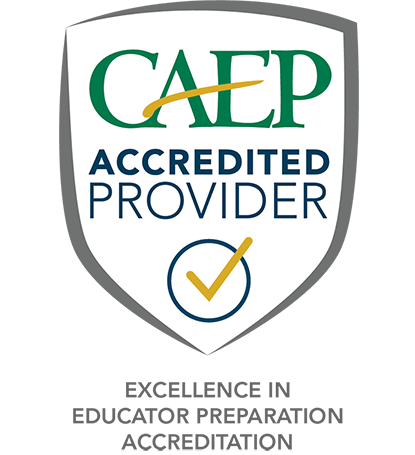Accreditation
The Council for the Accreditation of Educator Preparation (CAEP) accredits the University of Alaska Southeast. CAEP promotes excellence in educator preparation through content and pedagogy, clinical partnerships and practice, candidate recruitment, progression, and support, program impact, and quality assurance and continuous improvement.
- The University of Alaska Southeast meets rigorous national standards for educator preparation set by the Council for the Accreditation of Educator Preparation.

Initial Teacher Preparation
- Elementary Education (K-8)
- Bachelor of Arts
- Graduate Certificate
- Master of Arts in Teaching
- Special Education (K-12)
- Bachelor of Arts
- Master of Arts in Teaching
- Secondary Education (6-12)
- Master of Arts in Teaching
- Graduate Certificate
Advanced Programs
- Reading (K-12)
- Master of Education
- Graduate Certificate
- Special Education (K-12)
- Master of Education
- Graduate Certificate
- Educational Leadership (K-12)
- Master of Education
- Superintendent (K-12)
- Graduate Certificate
Annual Reporting Measures
Employer surveys of new teachers' preparation are included in the University of Alaska Southeast Annual Report. For 2021-2022, 43 employers provided data about our graduates. The satisfaction rates from the survey indicate overall satisfaction with the training of their University of Alaska Southeast graduates.
Initial Teacher Preparation Programs Employer Survey Results
The EPP finds the results of the advanced employer survey inadequate for interpretation due to low responses but is still presenting results. Survey development and implementation have been identified as areas for continuous improvement.
From UA Decision Support Database & State of Alaska Dept of Education Employment Statistics, the results indicate that 85% of our graduates are employed full-time in Alaska in positions for which they have been prepared by the UAS School of Education.
Last modified: January 6, 2025